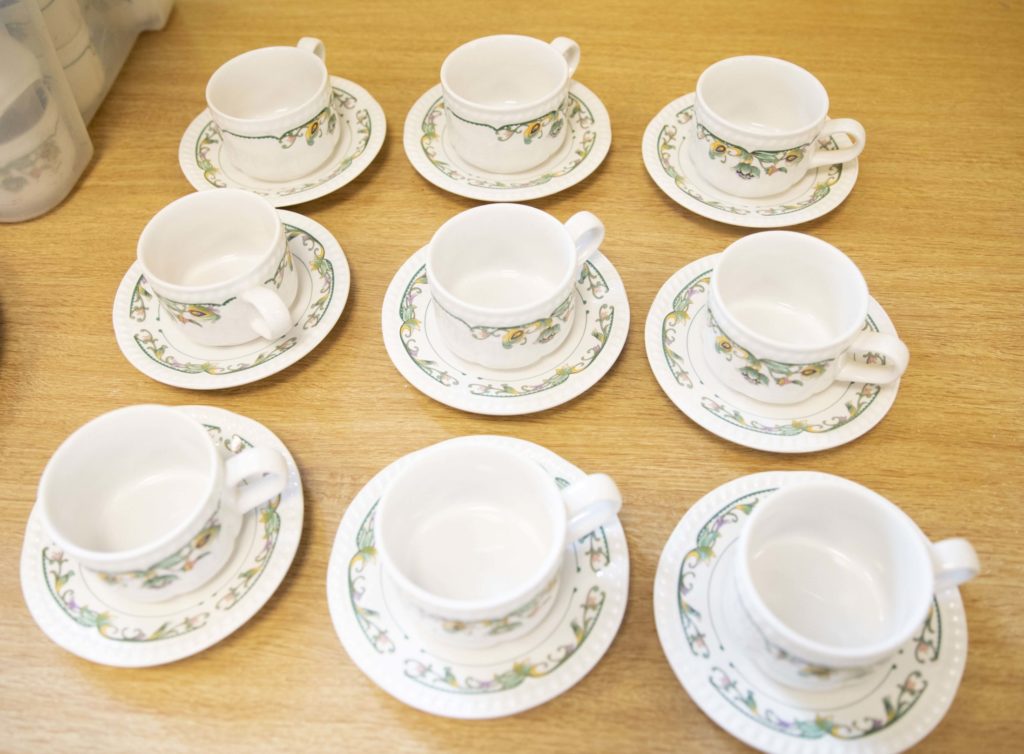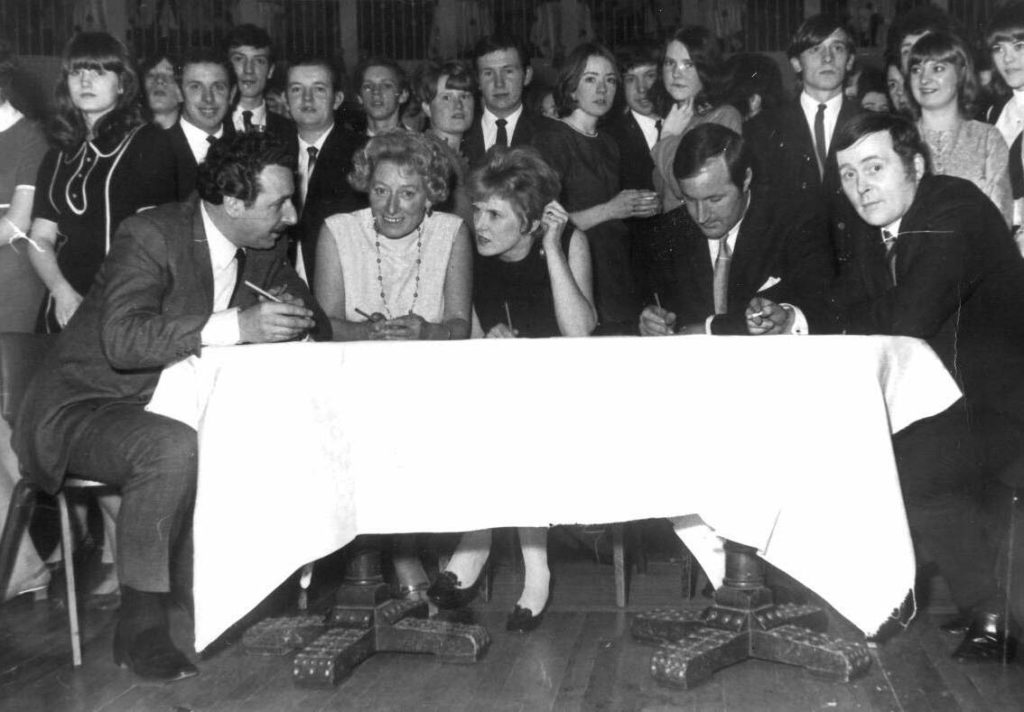
Listening to all the stories we’ve collected so far, I’ve noticed that one type of textile worker was always spoken of with fondness and sometimes even awe… the canteen workers or ‘tea ladies’. Always there in the canteen, ready with a cuppa when your tea break was due – just the way you liked it. Whether it was a Friday morning ‘bacon and egg sandwich’ at Courtaulds, Long Eaton, or a hot meal and a cup of tea at countless other firms, they waited in the background, but could be seen as the ‘engine room’ of the workforce. Ready to bolster spirits and revive hungry workers. At many sites, you could also eat your own food, brought from home. This was perhaps taken to extremes by the night shift at Masson Mill, Matlock… one of our interviewees heard tales of the nocturnal workers catching fish in the river and cooking them in the canteen (although he never actually witnessed this…).
It was a good way for the employer to keep their workforce on site during breaks, of course. Although this didn’t always work, as one of our interviewees who used to work at the John Smedley factory mentions occasional dinner time trips to the nearby Yew Tree Inn, running up the road to the landlord who had the ‘pints lined up for them’ and running back again ‘5 minutes before the blower’.
The canteen played a part in both enforcing and undermining a firm’s hierarchy. At one Courtaulds site, we were told that Managers and Directors had different canteens. The difference being that Directors ‘got gin and tonics and that sort of thing’. Yet, several interviewees mention a Christmas tradition of staff being served their Christmas meal by their bosses (for instance at John Smedley’s, and Corah’s).
The works canteen was also well-used as a communal space. Doubling as a theatre for the firm’s amateur dramatics group, a competition venue for indoor sports such as darts and table tennis, and a Christmas party venue. It was a place for managers and unions to work out disputes (at one point, used as a means of dispersing a strike as the union leaders and picketers were invited into the canteen for tea and coffee). In darker days, for some, it was also the place that closures were announced.
It seems the canteen workers and ‘tea ladies’ saw it all, and whether celebrations or commiserations, they were ready with that all important cup of tea…
Article by Tonya Outtram

Viyella, Hucknall. Image courtesy of Margaret Sears